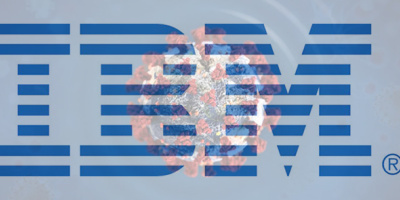It's always hard to fill the shoes of someone who has gone before, and Bob Cozzi's decision to step away from this newsletter has left MC Press Online with a challenge: How do you replace a teacher who has proven to be as intelligent, thoughtful, and experienced as Bob Cozzi?
The answer is "You don't!" Instead, you take a look at what the readers need to know, and you aim to find the best talents available to promote the mission.
What is the mission? RPG, of course! And everything it touches!
Modern Languages and Modern RPG
Let me tell you a story that recently piqued my interest.
A person high up in the echelons of the corporate IBM world (who shall remain nameless) sent me an email that smacked a bit of typical big-IBM chauvinism. He asked me rhetorically, "How can we move the cult of RPG programmers into the modern world?"
By this, he evidently meant moving RPGers to the so-called "modern languages" that his corporation has spent years promoting. What these individual languages are and have been, of course, has evolved over the years: First there was PL1, then C, then C++, then SmallTalk, and currently, Java—in support of IBM's WebSphere middleware platform.
Now, don't get me wrong: We're not in a programming language war. Each of these languages has its merits, and each has had strong, knowledgeable proponents. In fact, I've heard some of these proponents tell me, every five years, that RPG is dead, only to have them come back to me later to inform me that though they'd now moved onto yet another programming language, in their view, RPG was still dead!
Dead? This so-called "modern world view" of programming languages seems strangely divorced from the real world of System i programmers! What is considered "modern" seems to be merely "hot." And the proof is that RPG is still here and still thriving, while many of those IBM-sponsored languages are but distant memories. Why? Because RPG is what academics call a post-modern language: a classic with a lifeline that debunks the myth of obsolescence.
Legacy Versus Cadillac!
So let's get to the bottom of the "legacy" versus "modern" debate right up front.
To my way of thinking, RPG is clearly not a legacy. It's a Cadillac! Not only is it a vibrant and highly productive tool used by literally thousands of developers day in and day out to maintain legacy code, but it's also a luxury vehicle used to build new and productive applications that are vital to the business community. And it is being used because, when the dust settles, it is the heart of the System i developer community and all that this community has come to expect in a luxury language!
Getting the Message Out
Of course, getting this message up the IBM food chain is not our goal here at RPG Developer. Instead, our message is to let you know not only that RPG Developer is alive and well—and still dedicated to the RPG language—but that we intend to transform this newsletter into something that you and your organization can better use.
In the coming months, we'll be transforming RPG Developer to do more than merely fill in the blanks of your personal RPG knowledge. We'll evolve this publication to help expand the use of the RPG language within your organization.
How?
Best Team of Educators
First, we have nearly finished lining up one of the hottest RPG editorial teams of educators on the planet. These are professionals who not only know and use RPG on a daily basis, but have built their careers around expanding the use of the language in business environments just like yours.
Second, we've engaged one of the best educators in the industry to prepare step-by-step tutorials that your organization can use again and again to train and educate the next generation of RPGers—first, in the use of the tools used to construct RPG source, and later in the implementation of the key functions that make RPG so powerful to the business community.
Beyond the RPG Blog!
Finally, we're opening the doors of this publication to you, our readers, to send us your ideas for new articles, tips, and techniques.
In the past, the value of RPG Developer was that it was almost a personal blog written by one of the industry's most renowned RPG authors, Bob Cozzi. Our goal is to move beyond the personal blog to enhance your involvement in the RPG community at large.
So if you have questions or queries or ideas about RPG–related areas that need to be explored, we welcome your input. We'll try to build our editorial schedules with those ideas in mind. And if we don't know the answer to a particular question, we'll do our best to find it for you.
Our mission statement is the same as it has always been: RPG all the time! But we're doing a bit of remodeling as we move forward with the new RPG Developer: Now it's RPG and all it touches all the time!
Drop us a note with your suggestions! I think you'll find the new RPG Developer will meet and exceed the expectations of all you've come to love about this newsletter.
Thomas M. Stockwell is Editor in Chief of MC Press Online, LP. He can be reached at






















 More than ever, there is a demand for IT to deliver innovation. Your IBM i has been an essential part of your business operations for years. However, your organization may struggle to maintain the current system and implement new projects. The thousands of customers we've worked with and surveyed state that expectations regarding the digital footprint and vision of the company are not aligned with the current IT environment.
More than ever, there is a demand for IT to deliver innovation. Your IBM i has been an essential part of your business operations for years. However, your organization may struggle to maintain the current system and implement new projects. The thousands of customers we've worked with and surveyed state that expectations regarding the digital footprint and vision of the company are not aligned with the current IT environment. TRY the one package that solves all your document design and printing challenges on all your platforms. Produce bar code labels, electronic forms, ad hoc reports, and RFID tags – without programming! MarkMagic is the only document design and print solution that combines report writing, WYSIWYG label and forms design, and conditional printing in one integrated product. Make sure your data survives when catastrophe hits. Request your trial now! Request Now.
TRY the one package that solves all your document design and printing challenges on all your platforms. Produce bar code labels, electronic forms, ad hoc reports, and RFID tags – without programming! MarkMagic is the only document design and print solution that combines report writing, WYSIWYG label and forms design, and conditional printing in one integrated product. Make sure your data survives when catastrophe hits. Request your trial now! Request Now. Forms of ransomware has been around for over 30 years, and with more and more organizations suffering attacks each year, it continues to endure. What has made ransomware such a durable threat and what is the best way to combat it? In order to prevent ransomware, organizations must first understand how it works.
Forms of ransomware has been around for over 30 years, and with more and more organizations suffering attacks each year, it continues to endure. What has made ransomware such a durable threat and what is the best way to combat it? In order to prevent ransomware, organizations must first understand how it works. Disaster protection is vital to every business. Yet, it often consists of patched together procedures that are prone to error. From automatic backups to data encryption to media management, Robot automates the routine (yet often complex) tasks of iSeries backup and recovery, saving you time and money and making the process safer and more reliable. Automate your backups with the Robot Backup and Recovery Solution. Key features include:
Disaster protection is vital to every business. Yet, it often consists of patched together procedures that are prone to error. From automatic backups to data encryption to media management, Robot automates the routine (yet often complex) tasks of iSeries backup and recovery, saving you time and money and making the process safer and more reliable. Automate your backups with the Robot Backup and Recovery Solution. Key features include: Business users want new applications now. Market and regulatory pressures require faster application updates and delivery into production. Your IBM i developers may be approaching retirement, and you see no sure way to fill their positions with experienced developers. In addition, you may be caught between maintaining your existing applications and the uncertainty of moving to something new.
Business users want new applications now. Market and regulatory pressures require faster application updates and delivery into production. Your IBM i developers may be approaching retirement, and you see no sure way to fill their positions with experienced developers. In addition, you may be caught between maintaining your existing applications and the uncertainty of moving to something new. IT managers hoping to find new IBM i talent are discovering that the pool of experienced RPG programmers and operators or administrators with intimate knowledge of the operating system and the applications that run on it is small. This begs the question: How will you manage the platform that supports such a big part of your business? This guide offers strategies and software suggestions to help you plan IT staffing and resources and smooth the transition after your AS/400 talent retires. Read on to learn:
IT managers hoping to find new IBM i talent are discovering that the pool of experienced RPG programmers and operators or administrators with intimate knowledge of the operating system and the applications that run on it is small. This begs the question: How will you manage the platform that supports such a big part of your business? This guide offers strategies and software suggestions to help you plan IT staffing and resources and smooth the transition after your AS/400 talent retires. Read on to learn:
LATEST COMMENTS
MC Press Online